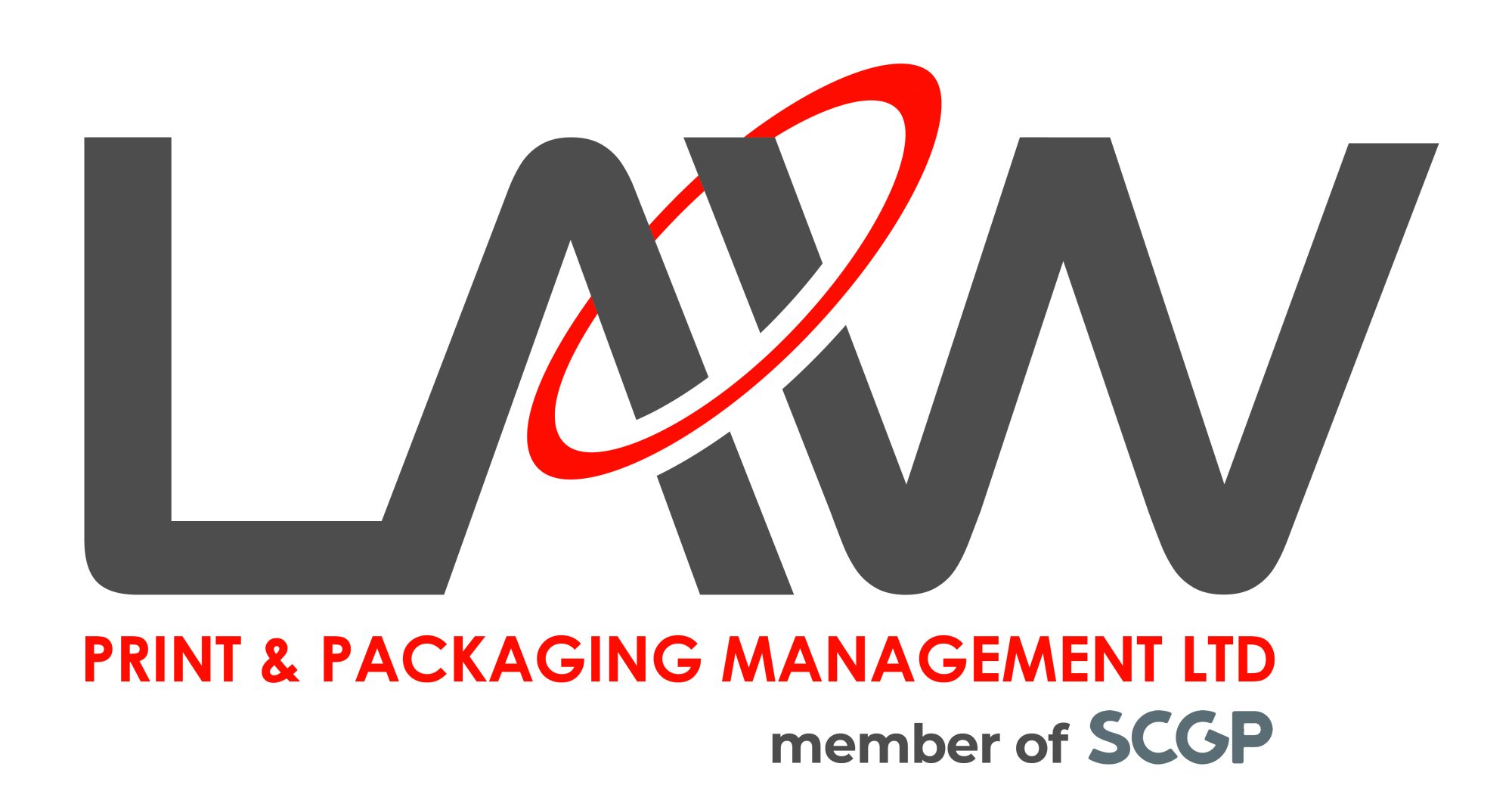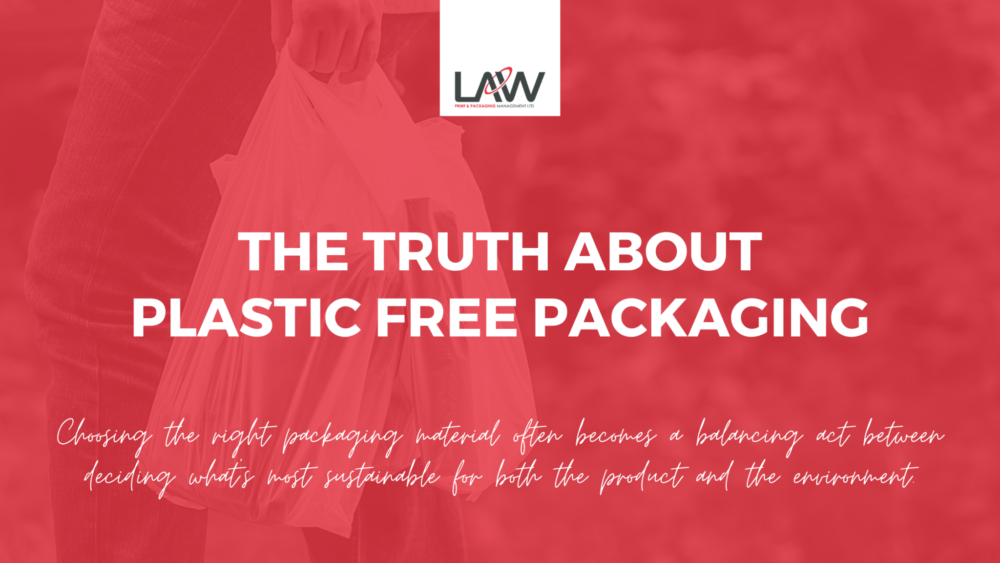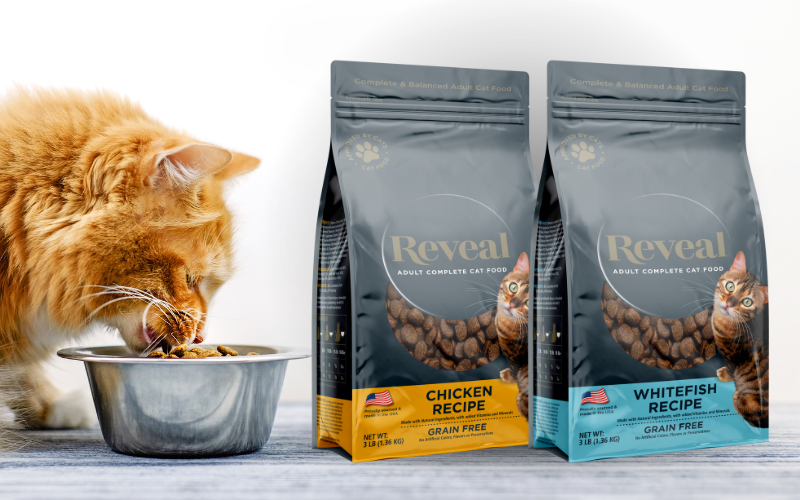The rise of plastic-free packaging is picking up pace, especially in the pet food industry. However, research shows that only 14% of UK pet food launches in 2019 featured sustainability credentials, despite 66% of dog food buyers preferring eco-friendly packaging brands.
This means many brands are now moving towards bioplastics and paper based packaging to pack their products. But are they relying too much on this very new technology? Are they entirely truthful about the recyclability of their packaging? Do they really understand how their packaging is made?
We’re going to be delving deeper into this new packaging innovation in this blog, debunking the myths and stating the facts about plastic-free packaging. It may seem like the perfect solution, but actually, there’s a lot more behind the scenes that will leave you questioning whether the bag is, in fact, recyclable.
Choosing the right packaging material often becomes a balancing act between deciding what’s most sustainable for both the product and the environment.
The reality of plastic-free packaging
You may wonder what harm bioplastics and compostable packaging could do to the environment. Surely they’re the perfect resource?
This is more than a simple switch. The straightforward act of swapping a plastic bag for a so-called greener option is a complex systemic adjustment with a far-reaching impact. Bioplastics can be broadly viewed in two categories: durable and biodegradable. Both are produced from plant-based raw materials that are often perceived as more sustainable than fossil fuels, but critical differences exist.
Is plastic-free packaging recyclable?
It depends entirely on how truthful a company is about its packaging material.
Some of the bags in current circulation have been made with plant-based polymers (corn starch or potato derived bio-plastics). The trouble with this is that combining two or more materials could significantly reduce how a bag is recycled.
Most pet food bags will have an inner layer of plastic (often PE or PP) or bio-plastic (like PLA corn starch or potato derived film) to provide the required barrier requirements and make the bags heat-sealable after packing.
It is therefore not ALL paper but mostly made of paper, with current OPRL (On-Pack Recycling Label) guidelines in the UK stating that a paper bag with up to 15% plastic content is deemed recyclable. However, this will soon change when the Plastic Tax is implemented in April 2022, and this requirement goes down to 5%, making it a more challenging target.
What is plant-based plastic?
Plant-based plastics or Bioplastics as they are commonly referred to as are innovative new materials that carry similar properties and benefits to traditional plastics.
A bioplastic is made from a plant source, compared to traditional plastic which is made from petroleum. There are varying types of plant-based plastics such as Wheat Straw, Bamboo Fibre, Rice Husks, Sugar Cane, Corn Starch, etc.
Bioplastics can be made with Polylactic Acids (PLA) which are naturally occurring in plants or they can be made with polyhydroxyalkanoates (PHA) which are engineered from microorganisms.
What are plant-based polymers?
Durable bioplastics were developed as an alternative to traditional PET bottles, such as fizzy drink packaging. These are manufactured from 30% plant-based ethanol, which decomposes but can be recycled with regular PET containers.
Biodegradable bioplastics are unsuitable for recycling and are instead designed to break down completely, unlike the vast majority of existing petroleum-based plastics, which will break down into smaller and smaller pieces microplastics but will never decompose or be absorbed by the environment. The unique nature of biodegradable bioplastics is attracting significant attention.
In most cases, biodegradable bioplastics are designed to break down with food waste but only under high-temperature industrial composting conditions. And herein lies the challenge for waste and recycling operators.
It is a sad truth that the rapid movement away from single-use plastics does not align with the current operational reality of the UK waste and recycling industry, or in most other countries for that matter.
What is dispersion coated packaging?
Some bags can also be treated with a dispersion coating that deposits a thin biopolymer layer to give them the required barrier properties. Dispersion barrier coating helps reduce and replace plastic used in food packaging and thus enables the development of recyclable paper or board packaging.
The recyclability of a bag depends entirely on how the dispersion coating is produced. Some brands use an aqueous coating which currently allows the paper bag to still be recycled.
However, the truth is it is still using a small amount of plastic, so is it really a sustainable solution and is it contributing to a more circular economy?
How can I make sure my product has 100% recyclable packaging?
That’s easy – choose Ready2Recycle, of course! It is plastic but it is 100% made of a single polymer structure (PE or PP) and therefore is fully recyclable.
In 2019, Law Print introduced the Ready2Recycle range to the market. Since then, it has become a staple for many of our customers, seeking fully recyclable packaging for their brands.
The reason why the Ready2Recycle range has gained so much popularity since its launch is without question the race to sustainability from both brand owners and retailers alike. Despite the current climate, the demand from consumers to offer alternative packaging solutions is still very much at the forefront.

In the end, it is down to brands to be as responsible with the information they provide to their customers as possible. Instead of potentially misleading an end-user into choosing a bag that they believe to be fully recyclable but is actually the opposite, brand owners have a duty to be fully transparent and sometimes accept that the perfect recyclable solution is not out there yet for their products but there are plenty of sustainable alternatives to take them in the right direction.
If your brand is looking to invest in quality packaging, we will guide you through the entire print process. Providing recommendations along the way to improve efficiency, reduce costs and add untold value to the end product.
Contact us on +44 (0) 161 440 7302 or follow this link to complete our contact form.


